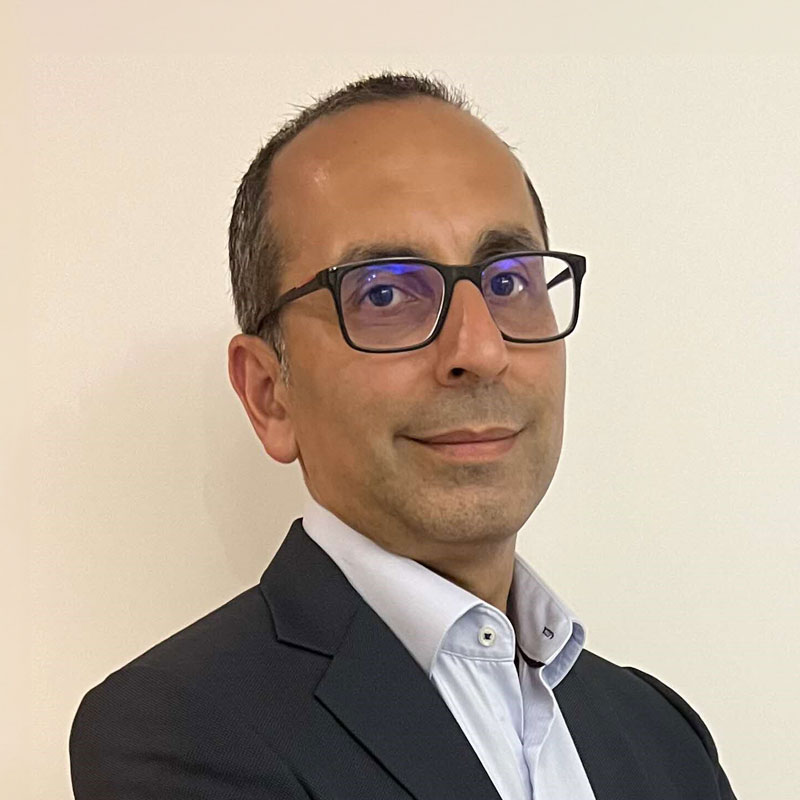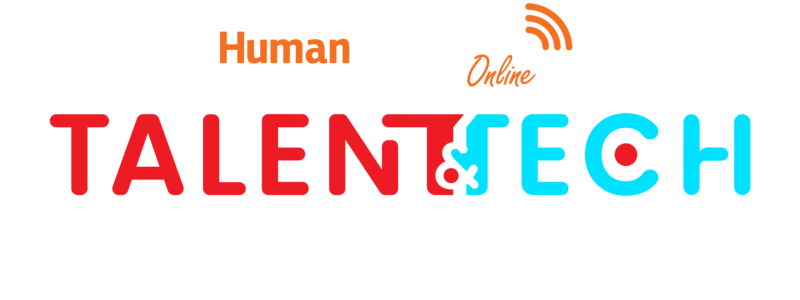Agenda
Registration
Welcome address

Aditi Sharma Kalra
Editor-in-Chief
9.15am
[Opening keynote]
Leading the charge: Understanding the critical role of HR in the era of AI
HR plays a critical role in the successful and safe integration of AI into the workplace, while retaining the human touch.
While the potential of generative AI is immense, many companies are still grappling with how to implement it effectively. As organisations explore what AI can achieve, HR must steer discussions on its ethical and sustainable use, while balancing innovation with integrity and trust. By fostering skills development and driving adoption, HR is essential in shaping a business strategy that embraces innovation while supporting employees through this transition.
In this session, our speaker will lay the foundation to:
- Champion the ethical use of AI while balancing innovation with organisational values.
- Assess and address current and future skills requirements to prepare the workforce for AI integration.
- Ensure AI implementations enhance diversity and inclusion, actively addressing and mitigating bias in workplace processes.
Speaker:

Emily Yang
Head of Human-Centered AI and Innovation, Strategy and Talent (HR, CABM, CRES, SCM)
9.55am
[Panel discussion]
Shaping the future: Navigating the modern workforce in an AI-enabled world
The integration of advanced technologies into talent processes is becoming imperative, even while jobs and roles are changing faster than ever. How can talent and people leaders keep up? How can companies build an AI-capable and future-ready workforce to address the growing skills gap?
In this session, we will explore:
- Impact of AI across geographies, industries, and roles.
- AI-driven talent development solutions and processes that can equip organisations with the tools they need.
- The role of HR in creating a culture of adaptability to navigate AI-driven transformations.

Andrew Thomas
Regional CEO

Alvin Goh
Head of Digital HR & Analytics
FairPrice Group

Roshni Wadhwa
HR Transformation Director, SAPMENA

Tasha Kapoor
Director, Talent Management & Learning
Morning break
11.05am
[Keynote]
Empowering future talent: The DBS approach to workforce transformation by leveraging GenAI
Integrating GenAI requires a fundamental shift in how we work to unlock its full potential. Simply adopting the technology isn’t enough; organisations must measure its impact on productivity, workflow transformation, and long-term workforce success. DBS’s structured approach demonstrates how empowering employees with the right tools and fostering trust in AI-driven decisions yields significant results.
In this session, our distinguished speaker will share insights on:
- How DBS strategically implemented GenAI to future-proof its workforce and drive measurable outcomes.
- Tools, frameworks, and strategies for evaluating GenAI’s role in workforce transformation.
- Aligning AI with business goals and ensuring responsible AI use to maximise workforce benefits.

Rajeev Hassamal
Head of GenAI and Future of Work
11.45am
[Case study]
AI in talent acquisition: Transforming the way organisations find the perfect match
AI is transforming talent acquisition, presenting opportunities and challenges for both organisations and candidates. While AI has the potential to streamline and enhance recruitment processes, it is crucial for organisations to balance its advantages with potential complexities, to ensure a positive candidate experience.
This session will delve into the evolving role of AI in recruitment, addressing both its impact on hiring practices and the candidate journey.
- How AI is reshaping recruitment practices, including its effects on candidate experience, time and cost to hire, and the overall hiring process.
- Strategies to balance between integrating intelligent algorithms into recruitment whilst relying on human intervention to create milestones for responsible adoption.
- Maximising the capability of AI tools during virtual interviews to ensure accurate assessment of candidates’ true capabilities, prevent potential misuse, and diminish inherent human biases.
Networking lunch
Real Estate™
Join us for a 20-minute experiential showcase where you will experience the thrill of Real Estate™ while sharpening your problem-solving skills and learning valuable lessons in communication, teamwork, and leadership. You will be handed the details of four real estate transactions and tasked with determining whether the fictitious couple made money, broke even or lost money.
1.45pm
[Keynote]
From a narrow path to transformative highway: The impact of AI on the human side of the workplace
As organisations advance their inroads into AI integration, the narrow path of early adoption is quickly expanding into a transformative highway.
This shift promises not only significant productivity and efficiency gains but also profound changes in employee behaviour and workplace dynamics. Leaders must be prepared for these changes, ensuring that AI complements and enhances human strengths rather than diminishing them.
In this session, our speaker will take the stage to discuss:
- Evolving role of leaders as AI reshapes team dynamics and required skills.
- Ensuring AI enhances employee autonomy and productivity, rather than replacing human contributions.
- Maintaining strong interpersonal connections and collaboration in an AI-driven environment.
- Psychological impacts of large-scale AI use and implementing strategies to support employee mental health and resilience.

Teofilus Ponniah
Regional HR Director (APAC, Europe, Middle East & Africa)
2.25pm
[Mini workshop]
Beyond the hype: Insights & learnings for integrating AI into operating models
The integration of AI into every job function sees skills such as prompt engineering coming into prominence, with leading organisations experimenting with embedding Generative AI into their operational models.
What do these productivity pilots reveal? How are teams adapting to working alongside AI, and what are the workforce planning strategies that are shaping the future of work?
This session will explore key lessons from these early experiments and provide insights on what we can all learn from organisations that are already embracing AI.
In this discussion, we talk about:
- Impact of GenAI on workforce planning: How organisations are reshaping their workforce strategies to integrate AI across various job functions.
- Skills for the future workforce: Identifying critical skills needed to work alongside AI, and monitoring their development.
- Real-world data and learnings: Insights from pilot programmes and productivity tests showcasing the effectiveness of AI augmentation in real organisational settings.

Soon Eng Sing
Vice President, Group People & Sustainability
Afternoon break
3.55pm
[Fireside chat]
Data-driven workforce planning: Harnessing insights for future leadership success
Developing a robust talent bench is crucial for ensuring long-term organisational success and resilience. A well-structured talent bench strengthens an organisation’s ability to navigate leadership transitions seamlessly, mitigate risks associated with key role vacancies, and adapt to shifting market demands.
This session advocates to proactively identify and nurture high-potential employees, by bringing out:
- How predictive analytics can forecast talent needs, identify skill gaps, and optimise workforce planning.
- Platforms and tools that facilitate personalised learning and growth, ensuring that employees are prepared for future leadership roles and organisational demands.
- Develop and refine succession plans using data to track performance, career trajectories, and potential successors.

Iwan de Leeuw
Organisation Design Leader

Daorong Lin Director
People Analytics, Rewards & HR Tech
4.35pm
[Panel discussion]
Vision to value: Building a strategic roadmap for enterprise-wide AI deployment
Integrating AI across an organisation is a complex journey that goes beyond recognising its potential benefits. Scaling AI to drive value across functions, departments, and processes demands a clear strategy and a workforce equipped with the right skills. Organisations face the challenge of building a robust talent pipeline through upskilling and cross-functional collaboration, addressing critical hurdles in data acquisition and governance, and ensuring that AI initiatives align seamlessly with broader business priorities and culture.
- Establishing cross-functional collaboration between AI teams, HR, and business units.
- Addressing data acquisition, quality, and governance challenges across departments.
- Building a workforce with the skills necessary to support and scale AI capabilities.

Vinay Varma
Head of IT, ASEAN

Anitha Ramakrishnan
VP Talent Management APAC
5.15pm
Closing address

Aditi Sharma Kalra
Editor-in-Chief
5.20pm
End of day one of Talent & Tech Asia Summit 2025
Registration
Welcome address

Aditi Sharma Kalra
Editor-in-Chief
[Opening keynote]
HR as a catalyst: Driving transformative change for the modern workforce
The rate of disruption in today’s world can bring discomfort to many, yet this is the perfect opportunity for HR leaders to lead the workforce into the future of work. Rather than seeing disruption as a challenge, it can be embraced as a catalyst for innovation, flexibility, and long-term success.
- Leveraging a new HR operating model to deliver value: Embracing flexibility and responsiveness to meet the evolving needs of the organisation and its workforce.
- Building a culture that embraces change: Ways to quickly adjust strategies, policies, and practices to build mental resilience and drive away the fear of change.
- Disrupting ways of working, thinking and being: Moving from reporting HR information to providing insights that drive real business decisions.
[Fireside chat]
Empowering HR tech leaders: The strategic partner of CHROs in driving organisational impact
CHROs today face critical challenges such as sourcing skills, reskilling teams, enhancing manager effectiveness, and maximising ROI. To overcome these, they need their HR tech team as a strategic partner. Yet, many organisations struggle with gaps between business needs, CHROs, and HR tech capabilities, leading to underutilised systems and missed opportunities.
- Maximise HR tech ROI: Integrate and analyse HR data to drive strategic decision-making across systems.
- Accelerate HR effectiveness: Use AI-powered tools to break down data silos and foster data-driven HR transformation.
- Achieve business outcomes: Leverage insights to enhance employee engagement, performance, and retention.
- Strengthen partnerships: Align CHROs and HR tech teams to bridge gaps and collaborate effectively, ensuring HR tech capabilities meet business needs.

Daniel Kusmanto
Director, Digital & Analytics

Simon Cheong
Chief Human Resources Officer
Morning break
[Case study]
Retaining HIPO talent: Tapping into the power of people analytics to enhance employee experience and retention
Organisations are facing an uncertain future with volatile macroeconomic conditions, tight labor markets, layoffs and resignations causing concern and disruption to businesses globally.
While HR is responsible for supporting the business to prevent turnover, their sources of people data can often be disconnected, which prevents them from answering critical retention questions.
- How people analytics can provide deep insights into employee behavior, preferences, and needs, enabling data-driven decision-making.
- Use data to pinpoint factors that influence employee engagement and satisfaction, and how to address these areas effectively.
- Data-driven approaches to improve employee retention by addressing pain points and creating a positive work experience.
[Panel discussion]
Unlocking ROI: Connecting people metrics to business outcomes using people analytics
Organisations often say, “our people are our most valuable asset,” yet workforce costs are frequently viewed as expenses to control rather than strategic investments. How can HR and business leaders reconcile this tension and demonstrate the real value of people investments?
Traditional ROI metrics tell only part of the story. To build a truly people-centric business strategy, organisations must measure workforce contributions beyond financial returns—capturing impact areas such as innovation, resilience, wellbeing, and long-term business sustainability.
- Understand the full value of investing in employee wellbeing beyond ROI – including engagement, wellbeing, and leadership development.
- Identify key business questions that enhance HR’s strategic value through a healthier, more productive workforce.
- Demonstrate how supporting employee resilience can contribute to business outcomes.
- Shift the conversation from workforce expenses to business drivers such as productivity, retention, and resilience.
Panellists:

Sarah Power
GM, People & Culture, South East Asia & South Asia

Alicia Yoon
Senior Consulting & Solutions Lead

Pallavi Srivastava
Director Talent, APJ
Networking lunch
Trivia time!
Now that the delegates have spent some time networking with each other and hearing from the speakers of the day, it’s time to put the knowledge they have gotten so far to the test. Answer quiz-style questions and take on the other delegates in a time sensitive trivia quiz!
1.45pm
[Panel discussion]
Empowering people, driving growth: Catalysing ESG efforts through workforce-driven intent
Organisations of all sizes are stepping up to do their part to operate within the limits of the world’s ecosystem and contribute to the betterment of society, the protection of the planet, the transparency of business, and the prosperity of the economy. But this isn’t just a responsibility; it’s an opportunity to do things a better way—to build a stronger and more resilient organisation.
- How to ensure a clear and transparent ESG policy that engages your employees.
- Ways to actively engage, educate and involve your employees in ESG projects.
- Strategies for creating a culture for a sustainable business with an engaged ESG strategy.
Moderator:

Arunesh Kumar
Site HR Lead
Panellists:

Esther An
Chief Sustainability Officer

Jaspreet Randhawa
Human Resources Director

Shaun Ee
Cluster Head of People, Singapore & Myanmar
The HEINEKEN Company
2.25pm
[Case study]
Redefining human performance: Shifting from productivity metrics to sustainable workforce development
As industries evolve, traditional productivity metrics focusing solely on inputs and outputs no longer capture the full scope of worker contributions. Modern approaches require evaluating human performance with a more holistic perspective.
To align with both business goals and human sustainability, organisations need to integrate new performance metrics that reflect shared, mutually beneficial outcomes.
In this session, we discuss.
- Leveraging AI and data to transition businesses from outdated productivity measures to a more comprehensive assessment of human performance.
- Moving beyond bell-curve ratings and forced rankings, addressing the mindset and legacy issues that hinder talent development.
- Implement new performance metrics that balance business objectives with human sustainability, fostering a more engaged and valued workforce.

Cherry Chen
Human Resources Director, APAC
3.05pm
Afternoon break
3.35pm
[Keynote]
Agility from within: Fostering microcultures for organisational growth and flexibility
Traditionally, corporate culture has been seen as a one-size-fits-all approach, where uniformity ensures consistency across the organisation. However, in reality, businesses are made up of a diverse range of microcultures—distinct ways of working shaped by teams, functions, and geographies. Embracing these microcultures allows organisations to attract top talent, respond to change with agility, and meet the unique needs of their workforce.
- Cultivate microcultures that enhance agility, innovation, and employee engagement while aligning with the organisation’s broader goals.
- Embrace a “culture of cultures” approach that integrates diverse microcultures with organisation-wide principles to drive growth and flexibility.
- Strategies for balancing localised work practices with a cohesive company-wide culture that resonates with all employees, regardless of role or location.

Somya Sugandha
VP HR APAC
4.15pm
Closing address

Aditi Sharma Kalra
Editor-in-Chief
4.30pm
